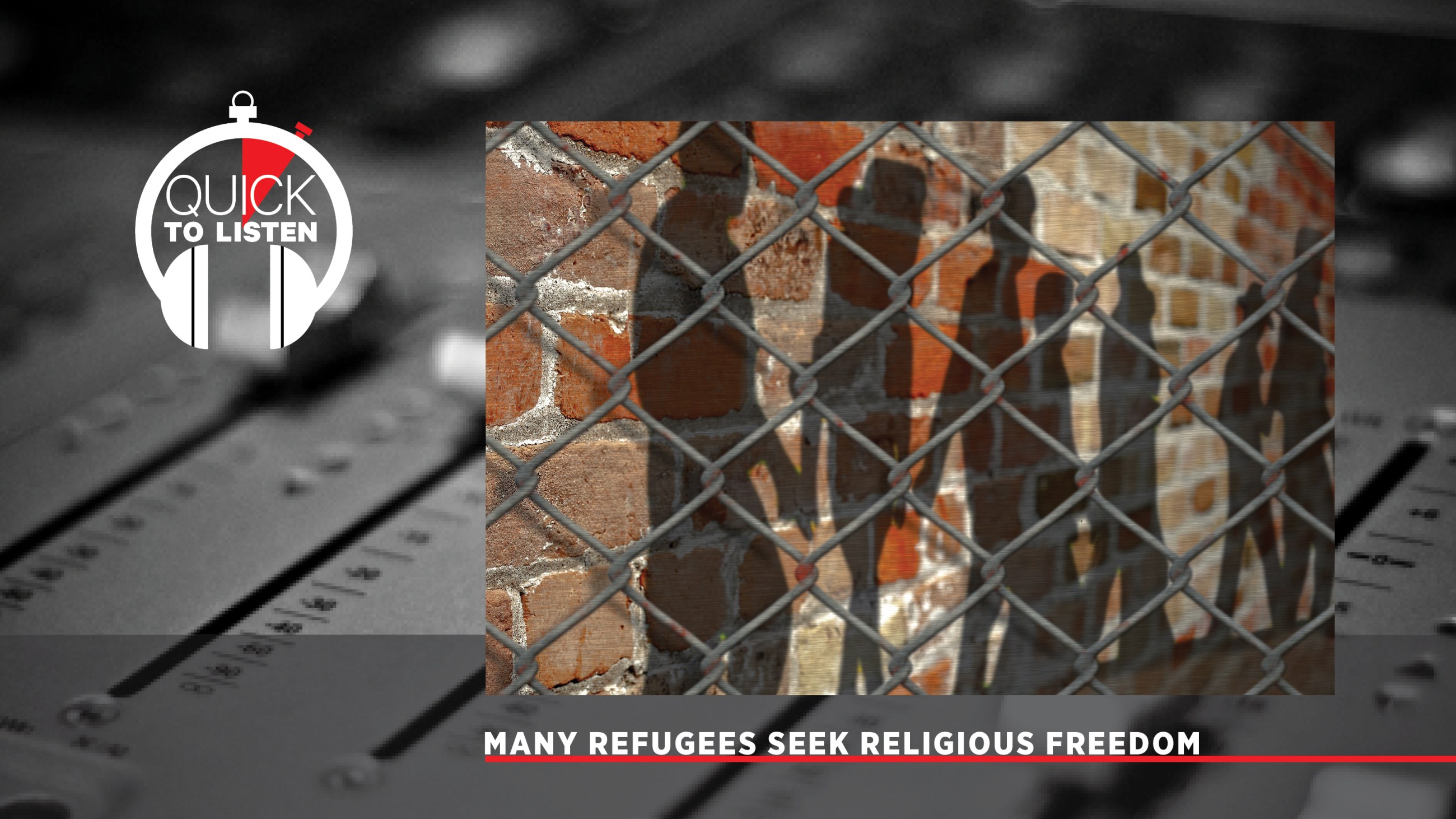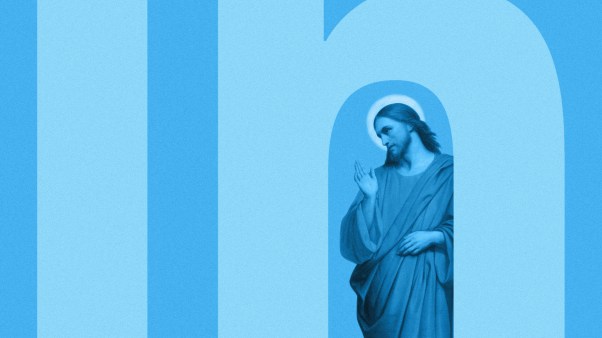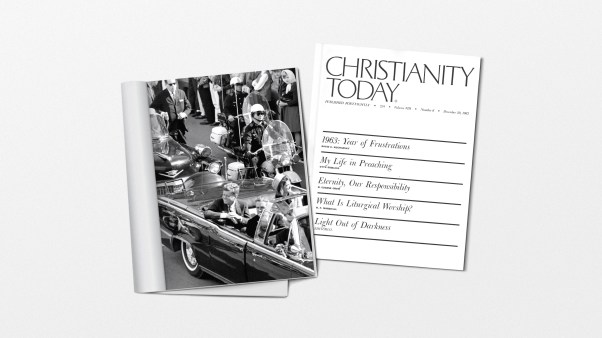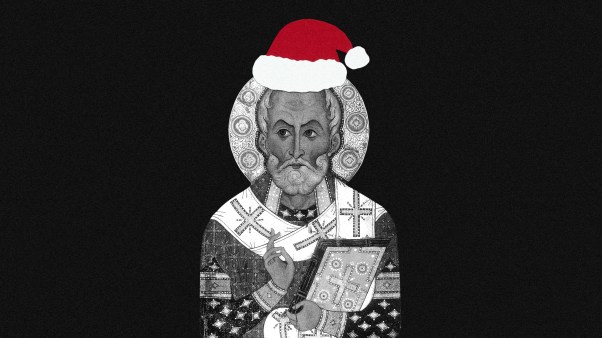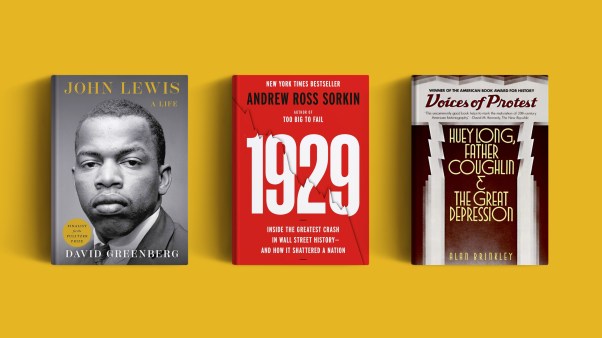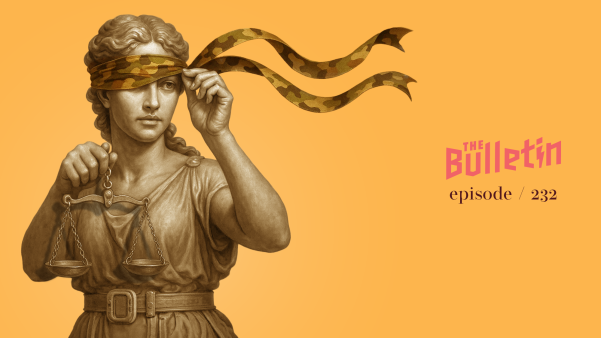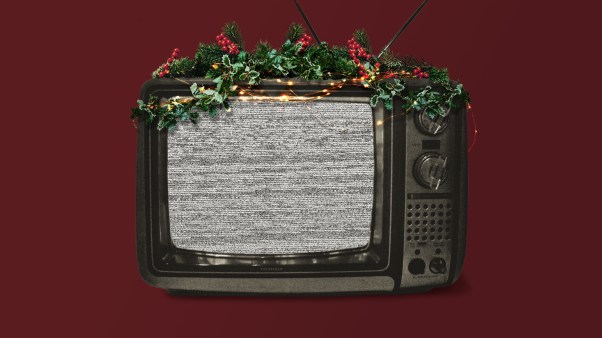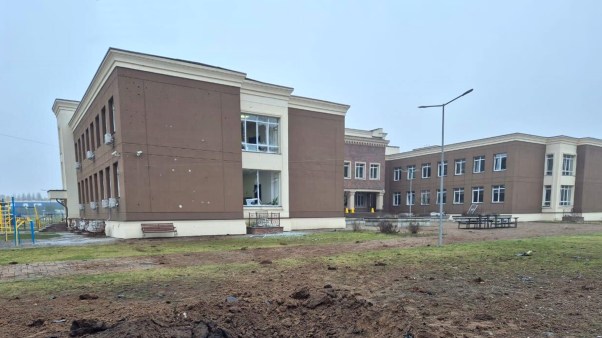Last week, the US hosted its second religious freedom ministerial, an event which calls attention to the plight of those suffering persecution for their faith (or lack thereof), around the world. The same week, Politico reported that some in the Trump administration were advocating to slash the refugee program to zero next year.
In light of the significant cuts to the program that the administration has already made, CT asked Secretary of State Mike Pompeo, who was organizing the ministerial, to respond to arguments that the refugee program had closed off “one of the avenues that people of minority faiths have to escape their persecution.” His response:
This administration appropriately is incredibly proud of how we treat those who are at risk around the world. I think there’s no nation in history that has accepted as many refugees as the United States has, nor whom has an even broader acceptance of people coming from around the world—both to come here to study and to learn, but those who want to come here permanently as well. Our focus here at the State Department has been to do our level best to do what we believe these people actually want: to help them stay inside of their own country, to deliver them goods and services and benefits, and to help shape their government policies in ways that permit them not to have to flee the country but allow them to exist safely and securely inside of their own country.
Now on staff at World Relief Dupage/Aurora, Durmomo Gary came to the United States over a decade ago. He left Sudan in the early 2000s after an attempt on his life because of his Christian faith and recently wrote about his experiences for the Daily Herald.
"We landed in New York on October 31. As an American you know what day that is,” he said. “We landed in the airport and all I can see around is creepy costumes. Never read about it. Never heard about it. It freaked me out.”
Gary and his wife survived the bizarre cultural experience to make their transfer to Chicago and begin the US side of the refugee resettlement process.
Gary joined digital media producer Morgan Lee and editor in chief Mark Galli to discuss what happens when you find out someone’s trying to kill you, how to get a passport when people are trying to kill you, and what it’s like to be a Christian in Sudan versus in America.
This episode of Quick to Listen is brought to you in part by NavPress, the publishing arm of the Navigators. Tricia Lott Williford’s book, Just. You. Wait.: Patience, Contentment, and Hope for the Everyday is available now, at navpress.com.
What is “ Quick to Listen”? Read more
Subscribe to Quick to Listen on Apple Podcasts
Follow the podcast on Twitter
Follow our host on Twitter: Morgan Lee
Subscribe to Mark’s newsletter: The Galli Report
Music by Sweeps
Quick to Listen is produced by Morgan Lee and Matt Lindor
Highlights from Quick To Listen: Episode 170
The number of refugees that the U.S. permits annually has declined each year under the Trump Administration. Since 2017, the administration has lowered the maximum cap that the country can take in. Beyond humanitarian concerns, this also has consequences from a persecution perspective as many of the refugees around the world hail from some of the world's most religiously repressed states, and many of those countries are considered Tier 1 "countries of particular concern" by the U.S. Commission on International Religious Freedom (USCIRF). In other words, they're the worst of the worst when it comes to religious freedom.
Earlier this year Christianity Today reported that "in 2016, the U.S. resettled almost 47,000 refugees from USCIRF’s countries of concern including 14,551 Christians. At this current rate, fewer than 9,500 refugees from the same countries will resettle in America this year and only 5103 Christians." Next year, it could be even worse. In fact, last week Politico announced that "Trump officials Pressing to Slash Refugee Admissions to Zero Next Year."
In a letter to President Trump released by The Evangelical Immigration Table, a coalition of evangelical institutions who frequently speak together on migration issues, they offered some concrete numbers for how the persecuted Christian community might be affected under this proposed plan. In the letter they said, "in your first week in office you pledged to welcome Syrian Christians to the U.S. As resettled refugees, a commitment we cheered. But in fact, the number of Syrian Christians admitted to the U.S. this fiscal year is on track to be fewer than 40. Even fewer than were admitted in fiscal year 2016. The decline among other persecuted Christians has been even more stark. Compared to fiscal year 2016, the number of Pakistani Christians resettled as refugees is on track to end the fiscal year down by 67%, the number of Iraqi Christians down by 94%, and the number of Iranian Christians down by 95%."
Last week, Christianity Today has the chance to interview Secretary of State Mike Pompeo. In response to the concerns that the dramatic cuts have closed off one of the avenues people of minority faiths have to escape persecution he said, "the administration appropriately is incredibly proud of how we treat those who are at risk around the world. I think there's no nation in history that has accepted as many refugees as the United States has, nor whom has had an even broader acceptance of people coming from around the world—both to come here to study and to learn, but those who want to come here permanently as well. Our focus here at the State Department has been told to do our level best to do what we believe those people actually want. To help them stay inside of their own country, to deliver them goods and services and benefits, and to shape their government policies in ways that permit them not to flee their country but allow them to exist safely and securely inside of their own country."
So this week on Quick to Listen, we wanted to get past the numbers and talk to someone who came to the U.S. as a refugee because of religious persecution. Joining us today is Durmomo Gary. He's originally from Sudan who now lives in Carol Stream. He works with World Relief in DuPage and Aurora as an immigrant church engagement liaison and senior support services specialist.
Tell us about a little bit about Sudan and your life there.
Durmomo Gary: The part of Sudan that I came from is the part that is now actually called South Sudan. But when people I ask if I'm from North or South Sudan, I say both since there was only one Sudan when I left. Life was normal based on my own definition. Growing up as a Christian I thought when you choose to be a Christian you choose to just have a difficult life. That things would not be good for you, you may not go to a college of your choice, you may not find a job of your own choice—not because you're not smart enough, but because someone else has to decide because you are a Christian, you can't make it. That was the life that I grew up in and I thought that was normal. That was the price of Christianity. For me the word prosecution never came across my mind because I thought it is not a prosecution, this is Christianity. This is what it takes to be a Christian. We accepted that when it comes to going to school or applying to college or a job, there were limits.
Sometimes a friend of mine would announce that they were becoming a Muslim and you'd see their whole life turn around overnight. And you realize the level of support and resources that you don't have access to as a Christian. But I always believed Christianity was not about being rich. It's not about having the money. It is about suffering for your faith. So if I choose to suffer for my faith, I will do it till the end.
My dad was a very strong Catholic. Growing up, going to church on Sunday was not an option. It was a must, even knowing that going to church and Sunday has its own risk as well. I can remember clearly as a kid seeing strange faces walking through the aisles and instantly thinking, "who is he here for?" Because often security guards were looking to arrest someone in church. I also remember times when at the end of prayers, the priest would say, "As we're going home now, please walk in groups," because of the threats we faced every Sunday. In fact, it was so common we made a joke out of it. We'd say, "Hey! I made it home yesterday. I made it home alone." It was part of the lifestyle. My biological dad was actually shot before I was born because of his faith. So to be killed because of your faith was something normal, and we expected that anybody could go through that.
What happened or changed that led you to leave Sudan?
Durmomo Gary: At that time there president of Sudan had declared jihad. So as a Christian, you were a target cause security forces has the authority to pick you up and do whatever they want to do to you. This was part of the genocide that happened in Sudan. Most people know about the war in Sudan during the late 80s and 90s. But what they don't know is that we had been at war since 1955. And even as I speak, it is still going on now. But it was around 1989 that it got really intense. At first it was Africans versus Arabs, but over time it was Muslims versus Christians. And the jihad was basically a government program that gave the right to kill anyone who was not Muslim.
I went to college one day and a security guard who knew me well told me, "You know they were looking for you?" He told me not to go to my lecture and to look for a place to hide. I wasn't sure what I should do but at the time running and leaving the country was not an option for me. I was totally against it. The question for me was, am I better than the people who have been killed in the same way? I'm not better than them, so I'm not going anywhere. When I called home to ask my dad if I could come home, he told me not to. That he wouldn't be able to protect me. Knowing not even my home was safe was when I started to think differently.
So a professor of mine took me in for about three months. He kept trying to convince me to leave the country. He would say, "We have lost enough people. We don't want to lose more. At my age, I'm ready to die but at your age, we need you to live. And the only chance for you to do that is to leave the country." So I sought advice from everyone I could and none of them could tell me where I should go. But I finally picked Egypt. A friend of a friend who worked with the government got me my passport; another friend who worked for a travel agency got me a flight.
Did you have a plan once you got to Cairo? Was your plan to immediately apply for refugee status? What did that process look like?
Durmomo Gary: My initial plan at that time was just to leave the country, get out of there and then see what is next. So I got to Cairo, I looked around, did not know what to do. And then my visa was soon due to expire, and I would be undocumented. So I decided to go to the UN office and tell them I came from Sudan. I thought maybe they will give me some form of documentation to protect me from the local police. So I went to the UN, reported myself and got registered with them. It was a whole process that took a long time.
The thing is, getting resettled—that's not your decision at all. You hear that refugees are people who flee their countries because of persecution. But getting refugee status is not automatic. Just because I left Sudan, I wasn't considered a refugee. I had to sit down and write a case which was submitted to UN officials. And then they questioned me to verify everything you claimed. And then, they can say yes or no. If they say no, you're not a refugee. I had a friend who was in Egypt with me. He lost his arm because a grenade was thrown into a church and he decided to pick it up to throw it out. He risked his life to do that, but when he applied for refugee status, he was denied.
After the UN gives you that status and you're officially a refugee, then they would see if there is an option to resettle you or not. If they decide to resettle you, the UN sends paper work through the International Organization of Migration (IOM) to the country they want to send you to. And then you have to have another interview with the officials from that country.
So USCIS officials flew from here to come and see me in Egypt. It was a different interview and they may still deny or accept me. So you're not done with the vetting yet. It was just starting. So the first interview with the UN, it could be once or twice, but now I was facing USCIS officials who wanted to talk to me in person and verify everything I have said. If they like you, it's time for the background check and biometrics. They bring all of your information back to the U.S., and then between five to six different security agencies work to vet you and make sure you're not a bad guy. Then the results go back to the U.S. Embassy in the country you're currently in. There, you have some more paperwork to complete. If everything goes okay at the embassy, then you go back to the IOM office. The IOM office will then try to sign you up for your first loan to pay for your travel ticket. Refugees do not fly for free; you have to pay for that ticket.
How would you say that your time in America has been challenging for your faith?
Durmomo Gary: Here it is completely different. To be able to wake up on a Sunday morning and know that I can go to church and pray without any fear, without any intimidation by anyone—that is huge. To be able to be a church and lift my hand and worship God and close my eyes knowing that I will not open my eyes and see a stranger who's waiting for me—that is huge. And to be know that I'm not being hunted by someone, to know that I can go out there and express myself as a Christian—that is a lot. That means a lot to me. And that's something I had never experienced, and I'm still learning. I'm still testing if it is real.
I could be wrong about this, but I feel like persecution is an ingredient for church growth. When you are faced with testing, you go for it. You don't let go of it. But when your faith is like a plateau, it is easy to live, you can easily slip off of it. I have seen that in my own life. I have seen how when things were really tough, we could pray all night. And that's one of the things I struggle with around here. I'll hear people say, "we need to have prayer points to pray." And I'm like, we have a lot to pray for already. But sometimes it's like we don't see the things around. And that is my challenge here in America, seeing that happening the church.
What do you wish that more American Christians understood about being a refugee?
If I use myself as an example, I was a Christian before I became a refugee. So if you would accept me as a brother in Christ, I am that before I became a refugee. So why would you ignore that and look at me as a refugee before looking at me as a fellow brother in Christ? And even if they aren't Christians, who are these refugees? They're just humans in the image of God. Regardless where the come from, regardless of how the look, how they speak, what they eat. And if they're not Christians, isn't that a chance to reach out to these refugees?
To me that is the opportunity for us. These people are around for a reason. God did not bring them for no reason. He brought them here for us to be able to reach out to them. They are here so that we reach out to them with the gospel, to show them who Jesus is, to show them the love of God. Unfortunately, many times I have not seen that happening.
I think as Christians in America today, when we hear about problems, about troubles, about refugees overseas, we need to pray for them. But prayer without action is dead. We turn our backs on brothers and sisters who are being persecuted overseas. We see the decline in the efforts to help them—the numbers have been going down and down and down and down every day—and as Christians, we chose to keep quiet. We don't want to talk about it because maybe that is politics. I know a lot of us are praying. But can we do something beyond that? Can we go beyond prayer? Can we stop turning our back on our very own brothers and sisters? The one that have been sold by ISIS in the slave market just because they are Christians? The ones that have been persecuted in Sudan just because they are Christians?

